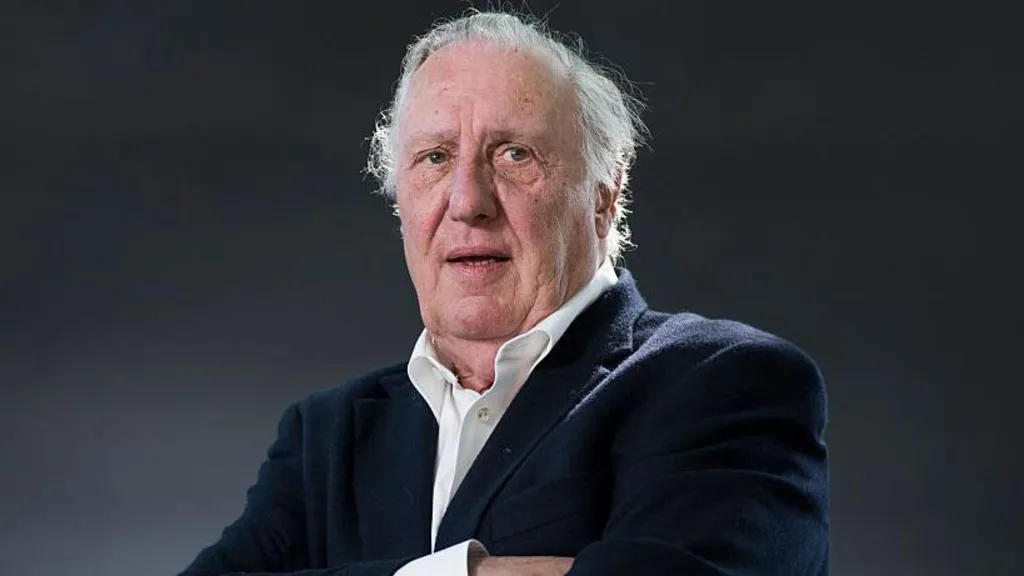Frederick Forsyth, who has died at the age of 86, wrote meticulously researched thrillers which sold in their millions.
A former fighter pilot, journalist and spy, many of his books were based on his own experience.
He wove intricate technical details into his stories, without detracting from the lightning pace of his plots.
His research often embarrassed the authorities, who were forced to admit that some of the shady tactics he revealed were used in real-life espionage.
Frederick McCarthy Forsyth was born on 25 August 1938 in Ashford, Kent.
The only child of a furrier, he dealt with loneliness by immersing himself in adventure stories.
Among his favourites were the works John Buchan and H Rider Haggard, but Forsyth adored Ernest Hemingway’s book on bullfighters, Death in the Afternoon.
He was so captivated that – at the age of 17 – he went to Spain and started practising with a cape.
He never actually fought a bull. Instead, he spent five months at the University of Granada before returning to do his national service with the RAF.
Having spent years dreaming of becoming a pilot, Forsyth lied about his age so he could fly de Havilland Vampire jets.
In 1958, he joined the Eastern Daily Press as a local journalist. Three years later, he moved to the Reuters news agency.
At Tonbridge School, Forsyth had excelled in foreign languages but little else.
Fluent in French, German, Spanish, and Russian, he was a born foreign correspondent.
Posted to Paris, he covered a number of stories relating to assassination attempts on the life of France’s President Charles de Gaulle, by members of the Organisation de l’Armee Secrete (OAS).
The group of ex-army personnel were angered at de Gaulle’s decision to give independence to Algeria after many of their comrades had died fighting Algerian nationalists.
Forsyth called the OAS “white colonialists and neo-fascists”.
And he decided that, if they really wanted to kill de Gaulle, they would have to hire a professional assassin.
Forsyth joined the BBC in 1965.
Two years later, he was sent to Nigeria to cover the civil war that followed the secession of the south-eastern region of Biafra.
When the fighting dragged on far longer than had been expected, Forsyth asked permission to stay and cover it. According to his autobiography, the BBC told him “it is not our policy to cover this war”.
“I smelt news management,” he said. “I don’t like news management.”
He quit his job and continued to cover the war as a freelance reporter for the next two years.
He chronicled his experiences in The Biafra Story, which was published in 1969. He later claimed that, while in Nigeria, he began working for MI6, a relationship that continued for two decades.
He also become friendly with a number of mercenaries, who taught him how to get a false passport, obtain a gun and break an enemy’s neck.
All these tricks of the trade would be incorporated in a tale of an attempted assassination of President de Gaulle, The Day of the Jackal, which he pounded out in his bedsit on an old typewriter in just 35 days.
He spent months trying to get it published but faced a string of rejections.
“For starters, de Gaulle was still alive,” he said, “so readers already knew a fictional assassination plot set in 1963 couldn’t succeed.”
Eventually, a publisher risked a short print run and sales of the book, described once as “an assassin’s manual”, took off, first in the UK and then in the US.
The Day of the Jackal showcased what would become the traditional hallmarks of a Forsyth thriller. It wove together fact and fiction, often using the names of real individuals and events.
The Jackal’s forgery of a British passport, using the name of a dead child taken from a churchyard, was perfectly feasible in the days before electronic databases and cross-checking.
The tale was made into an award-winning film in 1973, staring Edward Fox as the anonymous gunman.
Forsyth followed up his success with The Odessa File, the story of a German reporter attempting to track down Eduard Roschmann – a notorious Nazi nicknamed the “Butcher of Riga” – who is protected by a secret society of former SS men known as Odessa.
As part of his research, Forsyth travelled to Hamburg posing as a South African arms dealer. “I managed to penetrate their world and was feeling rather proud of myself,” he later said.


